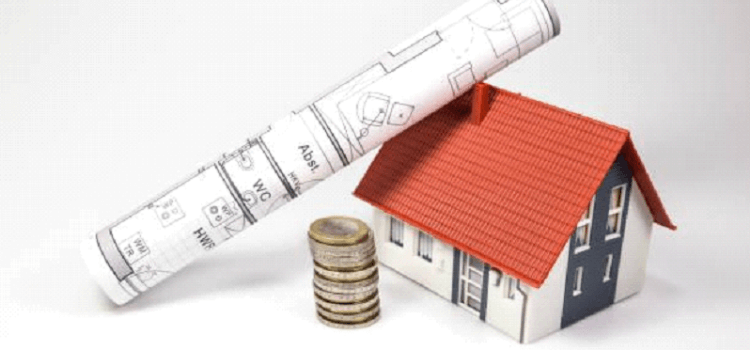When buying or selling a property in London, it’s easy to focus solely on the upfront costs and potential profits. However, ensuring a measured building survey is one relatively small expense that can end up saving home buyers and sellers significant money in the long run.
A measured building survey provides a detailed inspection and documentation of the property’s structure and condition.

While this may cost a few hundred or thousand dollars, its findings allow issues to be addressed before finalizing the sale. This prevents expensive repairs, legal disputes, or other unforeseen costs down the road.
A measured building survey acts as an insurance policy, giving both parties peace of mind and helping to ensure the true condition of the property is well understood. In this article, we will explore how the thorough evaluation of a measured building survey can help you avoid costly surprises and ultimately save you money.
Identifying Structural Issues Before They Become Problems
Land survey involves a detailed examination of the property’s structure and framework. During this time, measured building surveyors London inspect the foundation, walls, floors, roof, and other load-bearing elements for any cracks, bowing, warping, or other signs of weakness. Identifying even minor structural issues early allows them to be addressed before causing further damage or requiring more extensive (and costly) repairs down the road.
Things like foundation cracks, wall/ceiling sagging and roof defects that are caught early can often be repaired at a fraction of the price compared to waiting until they become serious problems.
Avoiding Costly Repairs After Uncovering Foundation Cracks or Water Damage
Two very common and expensive issues uncovered in many properties are foundation cracks and signs of water damage.
A measured building survey will inspect crawl spaces and basements closely, looking for any fracture lines in concrete footings or walls. They’ll also check for past flooding, plumbing leaks, or other moisture sources.
Finding these early enables you to request the seller to make repairs or provide a credit at closing. But if you don’t catch them before buying, you could be on the hook for major foundation work or mold remediation that costs thousands of dollars.
Preventing Legal Battles Over Undisclosed Property Defects
When critical issues with a home are covered up or not disclosed before the sale, it can potentially lead to legal disputes between buyers and sellers down the road.
However, a measured building survey report serves as invaluable documentation of the property’s exact condition at the time of sale. If any significant defects are uncovered, it allows you to renegotiate terms or walk away before finalizing the purchase. You can check out https://www.habito.com/hub/article/what-happens-after-a-survey-on-a-house-a-buyers-guide negotiating terms after a home survey.
The thorough survey prevents surprises and protects both parties legally by clearly outlining the status of the home before signing on the dotted line.
Negotiating Repairs Upfront Instead of Post-Sale Surprises
A home inspection catches any issues with the property before the sale is finalized. This gives buyers strong grounds to negotiate to have repairs made by the seller.
Rather than discovering problems after moving in and being stuck with the costs yourself, you can request the seller to repair structural cracks, fix roof leaks, or replace outdated systems. They may even offer a credit at closing to put towards future renovations.
Agreeing on repairs upfront removes the risk of post-sale surprises and lets you take ownership of a home in its best condition.
Flagging Necessary Upgrades to Electrical, HVAC, or Other Systems Early On

Part of a thorough inspection involves assessing major built-in systems and their condition.
Expert surveyors will evaluate whether the electrical panel is outdated, the HVAC [heating, ventilation, and air-conditioning] system nearing the end of life, the plumbing is corroded, or other upgrades are needed. Pinpointing aging or insufficient systems early on gives homeowners flexibility. They may budget for repairs, ask the seller to replace them before closing, or factor replacement into offering price negotiations.
Rather than facing a large six-figure bill unexpectedly after moving in, necessary modernizations are addressed transparently through the inspection process. Buyers can feel confident in what they’re purchasing and its long-term functionality. Click here to learn more about how HVAC works.
Ensuring the Survey Reveals Everything with Detailed Documentation
A thorough inspection report removes uncertainty by serving as a permanent record of the property’s condition. Skilled inspectors capture comprehensive notes, digital photos, and sketches to diligently document each area assessed.
This level of evidence helps address any questions that could arise later. It also protects both parties legally, as potential issues determined after the sale cannot be overlooked or claimed unknown.
The fully detailed inspection record gives peace of mind that issues will not be missed or liability denied due to lack of proof.
Understanding Property Value Impacts from Issues Before Finalizing Sale
Disclosing even minor problems before the real estate closing can significantly impact negotiations. A home survey reveals potential repair costs, but also how they may influence value either positively or negatively.
Big fixes like a new roof could simply be priced in, whereas foundation cracks could warrant an appraisal. Knowing this upfront objectively informs offer pricing.
It promotes an educated process where sellers and buyers each understand problems and have realistic value expectations before finalizing the deal.
Moving Forward
As the real estate market continues to evolve and more complex transactions take place, the benefits of a measured building survey will become even more important. With growing home prices and the financial investment homes represent, fully understanding a property’s current and future condition will be crucial for both buyers and sellers to mitigate risks.
Overall, making transparency and disclosure a priority early in the process sets all parties up for success moving forward with their long-term home ownership goals or investment plans.
As the value of knowledge and risk management increases, this form of due diligence will surely remain a vital yet cost-effective part of understanding a home’s life cycle responsibly.






Leave a Reply